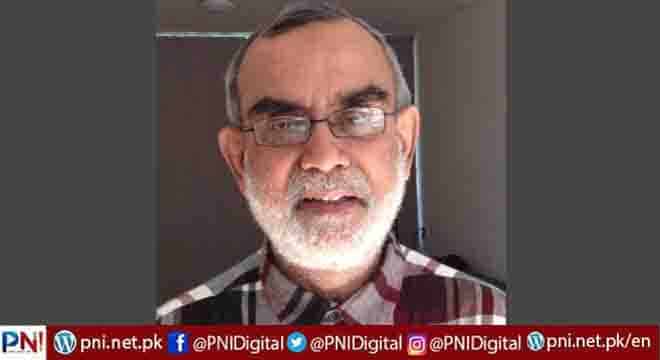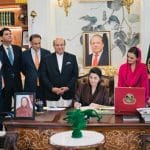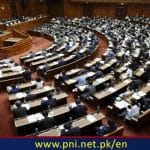There is a very intense and toxic debate going on social media on the vote of no confidence against the former Prime Minister Imran Khan. Opposition parties accused PM Khan of arrogance and incompetence.
PM Khan accused the parliamentary opposition of conspiring with the American establishment to overthrow his government. Both sides conveniently miss the main point, whether there is a need to change the ‘rules of the game’ for running the affairs of Pakistan.
This question will keep haunting us when the dust settles down, new elections are held, and a new government comes to power. There are three pertinent questions here, what rules need to be changed, who will change the rules, and what can ordinary citizens/voters do to press for the change in the rules. Before taking up these questions it is important to note the following:
One, change in rules of electoral politics is a nonpartisan agenda and all major actors in the power politics including major and minor political parties in the parliament as well as the army leadership need to agree on the new rules;
Two, any political party in power cannot provide the solution to the key political problems during its tenure in the office;
Three, although politicians love to claim that they have miracle solutions in their hands, any political party-let alone an individual leader-cannot come up with all the answers to Pakistan’s underperformance without the trust and cooperation of the business class, academia, research institutions, watchdogs in civil society and civil society organizations. In a nutshell, Pakistan’s fundamental problems are nonpartisan in nature and cannot be solved through partisan politics.
Let us review in detail the questions raised above to determine if we can find an amicable solution to the recurring crisis of governance in Pakistan. The first rule of business has to do with the Tax-GDP ratio, the second with the footprint of loans and the public sector in the economy, the third with the transparency of the government, the fourth with the roles of different power players in politics.
Tax-GDP ratio is the fundamental problem that explains most of the ills in our political culture. Our Tax-GDP ratio has hovered around 10 percent during the past 70 years. We have had an insatiable appetite for foreign loans because our ruling elites are not willing to pay more. Even in the 10 percent tax, a major share (70 percent) comes through indirect taxes by breaking the back of the poor masses. Our elites pay 3 percent of GDP as tax and their lifestyle would put to shame the lifestyle of the filthy rich in the West.
Our business class, which is very religious and nationalist in sentiments, refuses to agree on the documentation of the economy and pay its due share in taxes. Our tax administration is hand in glove with tax thieves. Our tax system suffers from a low sense of civic and administrative responsibility, a low level of trust between the citizens and the state, and a low level of performance in tax administration.
If we want to reduce the debt burden, eliminate corruption and invest in human and social capital we need to increase the Tax-GDP ratio. This problem cannot be solved by any civilian or military government; it can be solved through national consensus. Pakistan needs a leader who has expertise in building consensus not dividing and polarizing the nation.
The second rule of business has to do with trust building and consensus making. Consensus making depends on the sense of fair play in making new rules. It means that the person, group or institution leading the process should cut the cake in such a way that every interest group should have the feeling that they have received the largest slice. It requires leadership with humility, patience, and magnanimity. It is not good to name any name here, but someone needs to rise to the occasion.
The third rule of business has to do with the role of various power players. As a nation, one of the major flaws we are suffering from is that every institution is trying to interfere in the territory of other institutions instead of improving its own performance. We need to agree on a new social contract where interest groups, parties, and institutions may engage in dialogue with the others but lead others by setting examples.
The last point is what an individual voter or citizen can do. The citizens should own the government and engage with the government on daily basis. The process of accountability should start with monitoring local development schemes, gathering inside information, and restoring dysfunctional water, sanitation, health, education, and infrastructure schemes. This act itself will revive billions of dollars of sunken investment. Engagement at the local level should be the first step, the rest will change in the due course. Local engagement is the primary political school.
Follow the PNI Facebook page for the latest news and updates.








